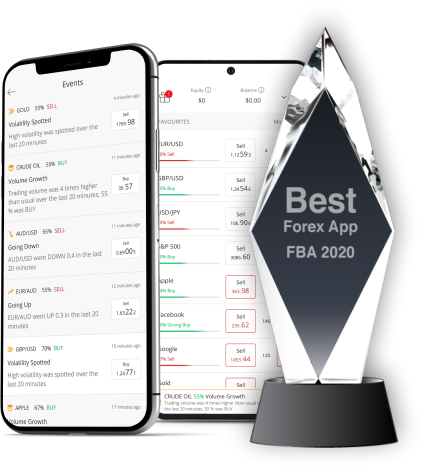
You may have wondered what stock futures are if you ever considered investing in the stock exchange. They are a standard contract that allows the sale or purchase of an asset at a certain price and date in the future. The parties to the contract are unknown to one another, and the asset traded is typically a financial instrument or commodity. This article will explore the basics of trading stocks using futures contracts.
Trading in stock futures
Trading in stock futures has its benefits. However, there is a higher risk involved. You could lose more of your initial investment or even more. This investment is risky, so you should be prepared to deposit margin at your broker. The "initial" margin is the initial margin. Your broker will close your trade if there is not enough maintenance margin.
Stock futures trading has the added advantage of being highly liquid. These instruments are very liquid, so you can trade them easily. This allows you to increase leverage. A stock broker may offer only 2x leverage, while a futures trader has 20x leverage. With this increased risk, however, comes a higher potential profit. Futures trading has many benefits that outweigh its risks. You should know all the risks before engaging in this type of trading.

Trading in single-stock futures
A single stock future (SSF), is a type futures contract where the buyer agrees that he will pay a specific price for 100 shares of stock at a given date. As with any contract, the buyer of an SSF does not receive voting rights or dividends. A single stock future gives the buyer the right to purchase or sell stock. A single stock future is a contract between investors that allows the buyer to purchase the stock at some future date. The seller must then deliver the shares.
Trades in single-stock futures contracts carry a high level of risk. A trader should be cautious about this type of investment. This type of trading requires a substantial amount of capital, which can result in a larger loss than anticipated. For traders who wish to diversify their portfolio, single stock futures can be used to leverage positions. Single-stock futures trading has some disadvantages that may be worth consideration if you have the time and resources to look at your investment options.
Stock index futures trading
The fundamental difference between trading in stock market index futures and trading on open markets is how futures contracts are settled. At the expiry of the contract, the futures contract in the latter category settles in cash. The cash amount is the difference between futures price and index value. Therefore, in the case of a stock index futures contract, the investor earns $5,000 in profit. Traders may own a portfolio of securities.
The Kansas City Board of Trade launched the Value Line Index futures futures contract in 1982. This was the beginning of the stock index futures trading market. The Chicago Mercantile Exchange, CME introduced the Standard & Poor 500 futures contract in 1982. It was followed by the Major Market Index for 1984. Stock index futures are becoming more popular among traders and investors. You should trade only in a portfolio that includes diversified stocks. There are many options for stock index futures.

Margin trading
For stock futures trading, you will need to have cash in your bank account to buy and sell the stock. Margin trading, also known as "gearing", or "leveraging", requires that you have additional cash in your account. If your account drops below a certain amount you will need to deposit more cash. This is because your open position will be marked to market every day, and if your position drops below that amount, you'll be forced to liquidate your position.
There are also risks to trading stock options on margin. Margin can either be your friend or your worst enemy. Start with a simulation to learn about margin before you start trading live. In practice, it's wise to hold positions for at least an hour before the market closes. Although margin is not necessary for all trading activities it is recommended to have a tried strategy to protect your funds in case of loss.
FAQ
Who can trade on the stock exchange?
The answer is yes. However, not everyone is equal in this world. Some people have more knowledge and skills than others. So they should be rewarded.
However, there are other factors that can determine whether or not a person succeeds in trading stocks. If you don’t have the ability to read financial reports, it will be difficult to make decisions.
You need to know how to read these reports. Each number must be understood. You should be able understand and interpret each number correctly.
This will allow you to identify trends and patterns in data. This will allow you to decide when to sell or buy shares.
And if you're lucky enough, you might become rich from doing this.
How does the stockmarket work?
Shares of stock are a way to acquire ownership rights. A shareholder has certain rights. He/she has the right to vote on major resolutions and policies. He/she has the right to demand payment for any damages done by the company. He/she also has the right to sue the company for breaching a contract.
A company cannot issue any more shares than its total assets, minus liabilities. It is known as capital adequacy.
A company with a high capital sufficiency ratio is considered to be safe. Companies with low ratios of capital adequacy are more risky.
What is a mutual fund?
Mutual funds are pools of money invested in securities. They provide diversification so that all types of investments are represented in the pool. This helps to reduce risk.
Professional managers manage mutual funds and make investment decisions. Some funds offer investors the ability to manage their own portfolios.
Because they are less complicated and more risky, mutual funds are preferred to individual stocks.
Why is it important to have marketable securities?
An investment company's main goal is to generate income through investments. It does this through investing its assets in various financial instruments such bonds, stocks, and other securities. These securities are attractive because they have certain attributes that make them appealing to investors. They are considered safe because they are backed 100% by the issuer's faith and credit, they pay dividends or interest, offer growth potential, or they have tax advantages.
What security is considered "marketable" is the most important characteristic. This refers to the ease with which the security is traded on the stock market. Securities that are not marketable cannot be bought and sold freely but must be acquired through a broker who charges a commission for doing so.
Marketable securities are government and corporate bonds, preferred stock, common stocks and convertible debentures.
These securities are preferred by investment companies as they offer higher returns than more risky securities such as equities (shares).
What is a REIT and what are its benefits?
An REIT (real estate investment trust) is an entity that has income-producing properties, such as apartments, shopping centers, office building, hotels, and industrial parks. They are publicly traded companies that pay dividends to shareholders instead of paying corporate taxes.
They are similar to corporations, except that they don't own goods or property.
Statistics
- For instance, an individual or entity that owns 100,000 shares of a company with one million outstanding shares would have a 10% ownership stake. (investopedia.com)
- "If all of your money's in one stock, you could potentially lose 50% of it overnight," Moore says. (nerdwallet.com)
- Our focus on Main Street investors reflects the fact that American households own $38 trillion worth of equities, more than 59 percent of the U.S. equity market either directly or indirectly through mutual funds, retirement accounts, and other investments. (sec.gov)
- US resident who opens a new IBKR Pro individual or joint account receives a 0.25% rate reduction on margin loans. (nerdwallet.com)
External Links
How To
How to Invest in Stock Market Online
Stock investing is one way to make money on the stock market. There are many methods to invest in stocks. These include mutual funds or exchange-traded fund (ETFs), hedge money, and others. The best investment strategy depends on your investment goals, risk tolerance, personal investment style, overall market knowledge, and financial goals.
You must first understand the workings of the stock market to be successful. Understanding the market and its potential rewards is essential. Once you've decided what you want out your investment portfolio, you can begin looking at which type would be most effective for you.
There are three main types of investments: equity and fixed income. Equity is the ownership of shares in companies. Fixed income means debt instruments like bonds and treasury bills. Alternatives include commodities like currencies, real-estate, private equity, venture capital, and commodities. Each category comes with its own pros, and you have to choose which one you like best.
Two broad strategies are available once you've decided on the type of investment that you want. The first strategy is "buy and hold," where you purchase some security but you don't have to sell it until you are either retired or dead. Diversification refers to buying multiple securities from different categories. For example, if you bought 10% of Apple, Microsoft, and General Motors, you would diversify into three industries. The best way to get exposure to all sectors of an economy is by purchasing multiple investments. This helps you to avoid losses in one industry because you still have something in another.
Risk management is another crucial factor in selecting an investment. Risk management is a way to manage the volatility in your portfolio. If you were only willing to take on a 1% risk, you could choose a low-risk fund. You could, however, choose a higher risk fund if you are willing to take on a 5% chance.
The final step in becoming a successful investor is learning how to manage your money. The final step in becoming a successful investor is to learn how to manage your money. A plan should address your short-term and medium-term goals. It also needs to include retirement planning. You must stick to your plan. Don't get distracted with market fluctuations. Your wealth will grow if you stick to your plan.